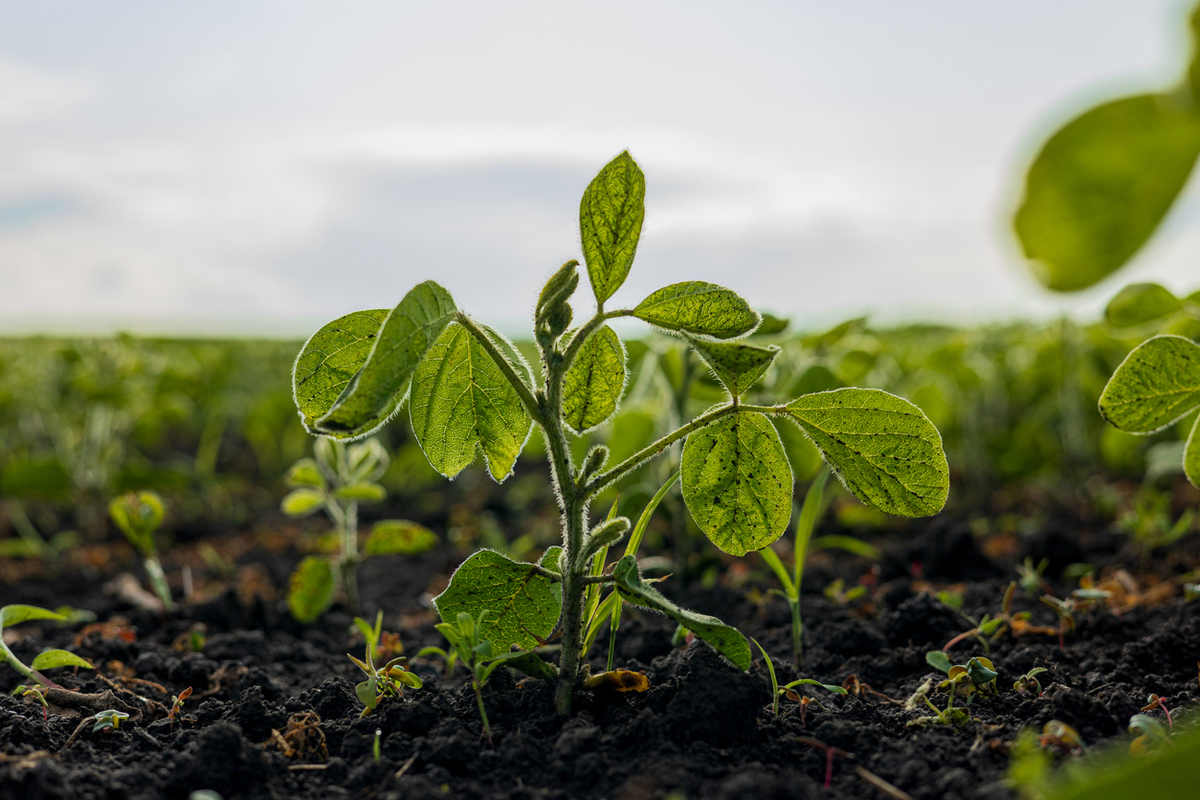
Researchers Identify Soybean Gene that Could Help Crops Thrive in Acidic and Low-Phosphorus Soils
October 8, 2025| |
A study published in Plant Cell Reports found that the GmAP2 gene enhances soybean tolerance to aluminum toxicity and low-phosphorus stress, which are among the major challenges for crop productivity worldwide. By overexpressing this gene, the researchers observed an improvement in physiological indicators, such as fresh weight, root length, and number of lateral roots.
GmAP2 is primarily expressed in roots, and its activity increases under acidic and low-phosphorus conditions. In this study, the researchers found that overexpression of GmAP2 in soybean root hairs led to significant increases in above-ground dry weight, phosphorus content, and total phosphorus concentration. They also found that the proline contents in the GmAP2 lines significantly increased and the accumulation of malondialdehyde significantly decreased, which suggests increased tolerance to aluminum toxicity.
Further analysis revealed that GmAP2 activates genes, such as AtALMT1, AtMATE, AtSTOP1, and AtPHT1;1, which contribute to enhanced aluminum tolerance and phosphorus uptake. The team also found that GmAP2 promotes lateral root development, which allows plants to absorb nutrients more efficiently. The findings of the study provide insights into how GmAP2 helps plants improve stress tolerance and offer a theoretical foundation for developing soybean varieties that can thrive in acidic and low-phosphorus soils.
For more information, read the study from Plant Cell Reports.
| |
You might also like:
- Researchers Pinpoint Soybean Gene Involved in Seed Size and Quality
- Researchers Identify Soybean Gene Enhancing Yield and Quality
- Pocket K No. 61: Rust Resistant Soy for Africa
Biotech Updates is a weekly newsletter of ISAAA, a not-for-profit organization. It is distributed for free to over 22,000 subscribers worldwide to inform them about the key developments in biosciences, especially in biotechnology. Your support will help us in our mission to feed the world with knowledge. You can help by donating as little as $10.
-
See more articles:
-
Plant
- Researchers Identify Soybean Gene that Could Help Crops Thrive in Acidic and Low-Phosphorus Soils
- Discovery of Wheat Pan-Transcriptome to Secure Global Food Supply
- Complete Genome Assembly Unlocks Potential of Northern Wild Rice
- Cornell Students Develop Color-changing Tomato
- Study Explores How GM Labeling Affects Purchasing Intentions
- Rothamsted Research Scientists Identify Key Wheat Genes that Control Plant Height and Grain Size
-
Animal
- MIT Genetically Engineers Mice to Stop Lyme Disease Transmission
-
Food
- FAO Calls for Building Safe, Sustainable, and Equitable Animal Feed Systems
-
Read the latest: - Biotech Updates (February 18, 2026)
- Gene Editing Supplement (January 28, 2026)
- Gene Drive Supplement (February 22, 2023)
-
Subscribe to BU: - Share
- Tweet

